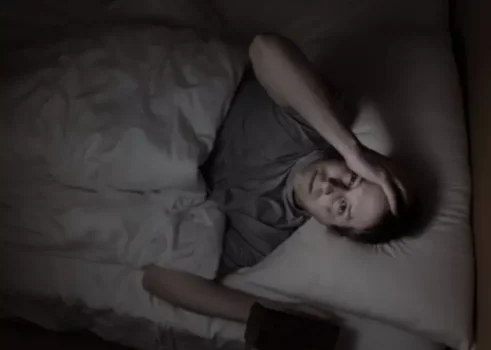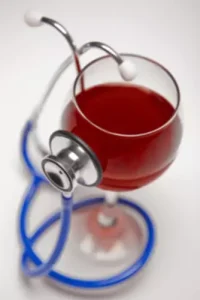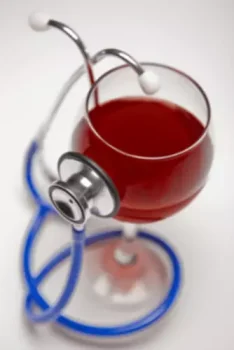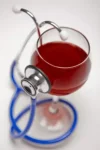
Shaking and tremors in the brain can be caused by various conditions and scenarios, and alcohol can be a factor. Alcohol increases the risk of having a stroke, which can cause lasting and permanent brain damage. When the area of the brain that controls motor function becomes impaired, uncontrollable muscle movements such as shaking can occur. In some cases, the brain can heal from the damage but there is no guarantee the shaking will stop. If you’re dealing with some post-drinking shakes, there are a few things you can do to manage the symptoms.
- A trained medical professional can best understand your specific medical situation and provide information that is specific to you personally.
- In extreme cases, withdrawal can lead to delirium tremens or seizures, both of which require immediate medical attention.
- For more information about the alcohol treatment programs we offer and how we can help you end your battle with alcohol and get back to a healthy life, contact FHE Health today.
- It’s important to note that not everyone who drinks excessively will experience alcohol shakes.
Nutritional Facts for the Hurricane Alcoholic Drink
These lingering effects can be a stark reminder of past struggles, but they can also be managed with the right strategies. Simple exercises, especially those that focus on fine motor skills and coordination like yoga or tai chi, can help in strengthening muscles and improving control over tremors. Deep-breathing exercises and meditation can also be beneficial, as they promote relaxation and help in reducing anxiety, which can often exacerbate tremors. Recovering alcoholics who have been sober for one year can find themselves experiencing alcohol shakes at random times during the day.
- In addition, mental health disorders, such as anxiety, stress, and depression, can increase the severity of alcohol withdrawal symptoms like tremors.
- New Jersey Intervention is here to help guide your or your loved one to the right place for addiction treatment and mental health treatment.
- These strategies will help the shakes to be as short and mild as possible when combined with medical treatments, but they are not a substitute for seeking professional help during detox.
- Alcohol shakes may arise during periods of reduced alcohol consumption or after abrupt cessation of drinking.
Evidence-Based Treatment

Catherine Chase is a professional writer specializing in history and health topics. She holds a Bachelor of Arts in American studies from Skidmore College. At Healthfully, we strive to deliver objective content that is accurate and up-to-date.

Short-term management of alcohol shakes
- Drinking ample amounts of water can help flush out toxins from your body and ease the symptoms of alcohol shakes.
- Delaying treatment can lead to serious health complications, and obtaining professional help is paramount for your safety and well-being.
- Typical withdrawal side effects include sweating, anxiety, insomnia, headache, nausea, vomiting, and tremors.
Staying hydrated also helps you feel better, sleep better, and feel full without consuming too many calories. After excessive drinking, your body doesn’t just need water but also the salts and minerals lost through increased urination. Sports beverages, oral rehydration solutions or even simple homemade solutions with salt and sugar can help. If you notice someone exhibiting these symptoms along with intense mood swings or anger, getting them to a hospital quickly may save their life. Unlike other clinics, our focus is providing you with a kind of care that is specific just to you.
How Do You Get Alcohol Out of the Body?
- Eating regular meals and snacks, focusing on complex carbohydrates like whole grains and combining them with proteins and healthy fats can help stabilise these fluctuations.
- The first thing you should do after seeking immediate medical attention for the alcohol shakes is to undergo detox treatment.
- Outpatient options, on the other hand, allow individuals to maintain certain aspects of their daily life while receiving treatment.
- For individuals struggling with alcohol dependency, professional treatment programs can offer the support and resources needed to reduce or stop alcohol consumption safely.
- When you drink too much, it can also increase weight, an added risk factor for heart problems.
If someone believes they may be experiencing alcohol use disorder or are experiencing tremors regularly, they should speak with a healthcare professional. A person can reduce their chance of hangover shakes by drinking less alcohol. It may also help to maintain hydration and stable blood sugar by consuming nonalcoholic drinks and food containing carbohydrates. Long-term alcoholics will suffer from alcohol shakes because of brain damage, liver disease (cirrhosis), or a disease called Wernicke-Korsakoff syndrome. Cirrhosis of the liver can make an alcoholic shake uncontrollably if enough scar tissue is preventing the liver from removing ammonia and other toxins from the bloodstream.
Shaking After Drinking Is Serious
Alcohol shakes, also called tremors, Halfway house are involuntary shaking movements that commonly occur in people undergoing withdrawal from alcohol. These shakes can range from mild to severe and are often most noticeable in the hands. They are a physical manifestation of the body’s dependence on alcohol. When someone who has been drinking heavily stops consuming alcohol, their body, which has adjusted to the presence of alcohol, suddenly finds itself out of balance, leading to these tremors.

If these do not go away over time, or if you get them after you try to stop drinking or have been drinking for a while, seek immediate medical advice. One of the more severe tremors is seen in people with severe or long-standing alcohol addictions. get rid of alcohol shakes These are tremors in people withdrawing from alcohol after drinking for an extended period.
The Hangover Shakes
In extreme cases, withdrawal can lead to delirium tremens or seizures, both of which require immediate medical attention. A balanced diet can play a significant role in managing alcohol shakes. Foods rich in vitamins and minerals, particularly B vitamins, magnesium, and potassium, are crucial for neurotransmitter function. Incorporating a variety of fruits, vegetables, whole grains, and lean proteins can support your recovery. We must note that alcohol can damage the brain and sympathetic nervous system to the point that alcohol shakes become chronic. If you are experiencing a shaking that’s somewhere between moderate and severe, it’s imperative that you quit drinking.
Personalized Mental Health & Addiction Care in Kansas City

B vitamins are crucial for nerve function and energy, with foods like whole grains, eggs and legumes all excellent ways to replenish your levels. If you’re waking up with hangover shakes on a routine basis, it might be time to evaluate whether it’s time for a change in your life. Sunlight Recovery understands how difficult it can be to make the transition to a clean, sober life, but we want you to experience the joy of knowing you’re in full control of your destiny. The chemicals your brain releases make your body more excitable and reactive.
How to Get Rid of Alcohol Shakes
The tremors are caused by overactivity in brain areas responsible for motor control, such as the cerebellum. This overactivity results in uncoordinated nerve signals being sent to muscles. When it is consumed regularly in large amounts, alcohol suppresses excitatory neurotransmitters like glutamate and enhances inhibitory ones like GABA, slowing down the nervous system. If drinking continues, the brain adapts by increasing glutamate activity and decreasing GABA activity. Outpatient detoxification may be the first stage of treatment for someone with a less severe substance abuse condition. This includes a potentially fatal brain condition called hepatic encephalopathy.
